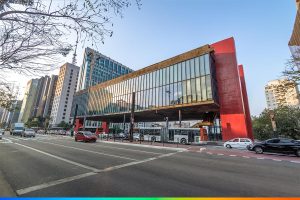One of the most important moments when buying a new property is when the property passes into the buyer’s name. It is at this moment that the General Property Registry (GPR) takes place.
In today’s article, we are going to explain to you everything you need to know about the General Property Registry, one of the last and most important steps to have the new property in your name. Keep up with us and happy reading!
What is GPR?
The General Property Registry is a term that can confuse many people. And rightly so! After all, the term can express two different things: it can both serve to designate a document and to indicate a place. In this article, we will deal with its first meaning.
The GPR, therefore, is nothing more than an official document that registers ownership of the property in the name of the new owner. It’s issued by the General Property Registry Office – precisely the second meaning of the term!
This document is important because it registers the name of the buyer within the property registration, indicating who is the new owner of the house or apartment legally.
The GPR is one of the last bureaucratic steps before finalizing the purchase and sale process. It is only done after signing the public deed or real estate financing agreement, if the property is financed) and completes the transaction by putting the name of the new owner on the property documents.
What is the importance of GPR?
The GPR is an important document because it changes and certifies ownership of the property, facilitating the transfer of ownership in the event of a sale or future transfer.
Besides that, the GPR is a document that protects the property against claims by third parties, for example, serving as proof of ownership in case of legal problems related to the property.
That is, the Property Registry is a document of paramount importance for the property to be, in fact, legalized and the owner with access to all his rights.
What is the difference between GPR, Property Registration and Deed?
The General Property Registry, the Property Registration and the Deed are three important documents throughout the process of buying and selling the property. Each of them is responsible for a legal apparatus involving the property and, therefore, are requested separately.
While the GPR certifies who owns the property, the Property Registration is the document that records all information about the property and legally proves the existence of the property through unique numbers. It’s like the Social Security number of the property!
The deed, on the other hand, is a document registered in the notary’s office and formalizes the transfer of ownership of a property to another person, guaranteeing the legality of the transaction.
When to do the General Property Registration (GPR)?
The moment to make the general registration of the property depends on the specific situation. Typically, it depends on whether the purchase is cash or financed.
If the purchase is made in cash, the GPR must be made soon after the purchase and sale agreement is signed. This usually occurs shortly after paying the entire value of the property.
However, if the purchase is financed, the GPR must be made after financing is completed. That is, the buyer’s name will only be linked to the property after payment of the last installment of the financing. Meanwhile, it is the bank that owns the property, but the buyer has the right to live in the property through the financing agreement.
When the debt is settled, the buyer must request the write-off of the fiduciary alienation at the registry office in order to finally have his name added to the property registration, becoming the de facto owner of the property.
In any of these cases, it is valid to remind GPR to be done as soon as possible to ensure the legality of the transaction and avoid legal problems in the future.
Where to do the GPR?
As we said above, the General Property Registry is a document held at the General Property Registry office. This establishment brings together the records of all properties in a given city or region through the registration of the property.
This means that, when purchasing the property, you should look for the notary that specifically serves the region where the house or apartment in question is located.
How much does it cost to do the GPR?
The price to make the GPR varies according to different factors, but mainly the location of the property.
The value of the General Property Registry (GPR) is determined by factors such as the type of property (e.g., house, apartment, land), the value of the property and applicable fees and taxes, such as Tax on the Transfer of Real Estate. In addition, fees are also included, which are fees charged by the property registry office for the use of its services.
It’s important to remember that the GPR amount may vary according to the specific situation and you may need to pay additional fees or taxes in addition to those mentioned above. Therefore, it’s important to consult the land registry office or the local municipality for more detailed information on the value of the GPR.
What documents are required to apply for the GPR?
In order to apply for the General Property Registry, it’s necessary to present a series of documents at the Property Registry Office. The necessary documents may vary according to the situation of the purchase and the property.
Besides that, it’s necessary to have gone through all the other stages of the process of buying and selling the good, since this is one of the last steps to be taken.
In general, the buyer must present his personal documents, the deed or the financing contract, the Tax on the Transfer of Real Estate payment slip and proof, the debt discharge certificate and pay the notary fees.
Okay, after presenting all the documents and entering the General Property Registration process, the procedure can take up to 30 days to be completed at the notary.
Are you planning to buy a new property?
Here at De Portas Abertas you will find all the information you need to proceed with the process of buying your new property.
Continue exploring our blog, deepen your knowledge and always stay up to date with news on the real estate market!
Check out just a few articles we’ve selected for you:



